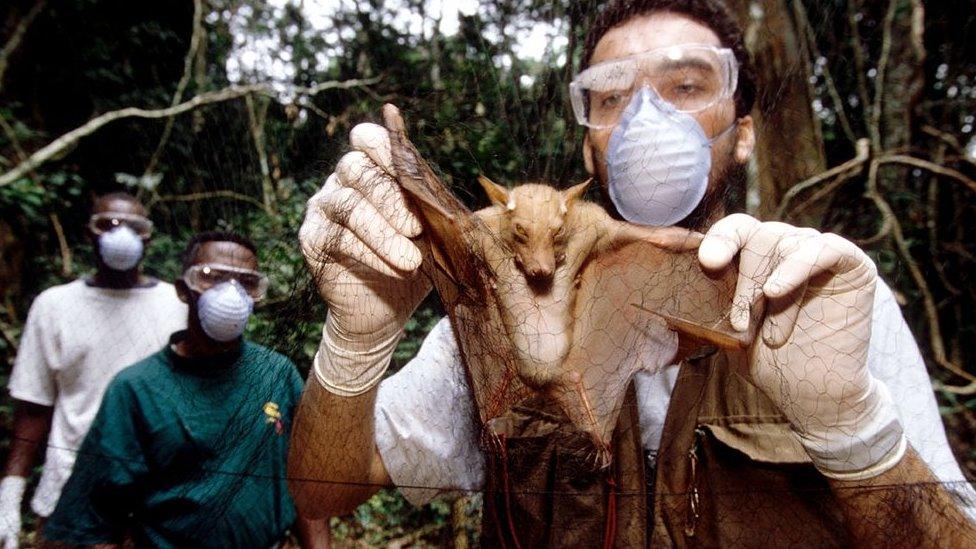Covid: Immune therapy from llamas shows promise
- Published
- comments
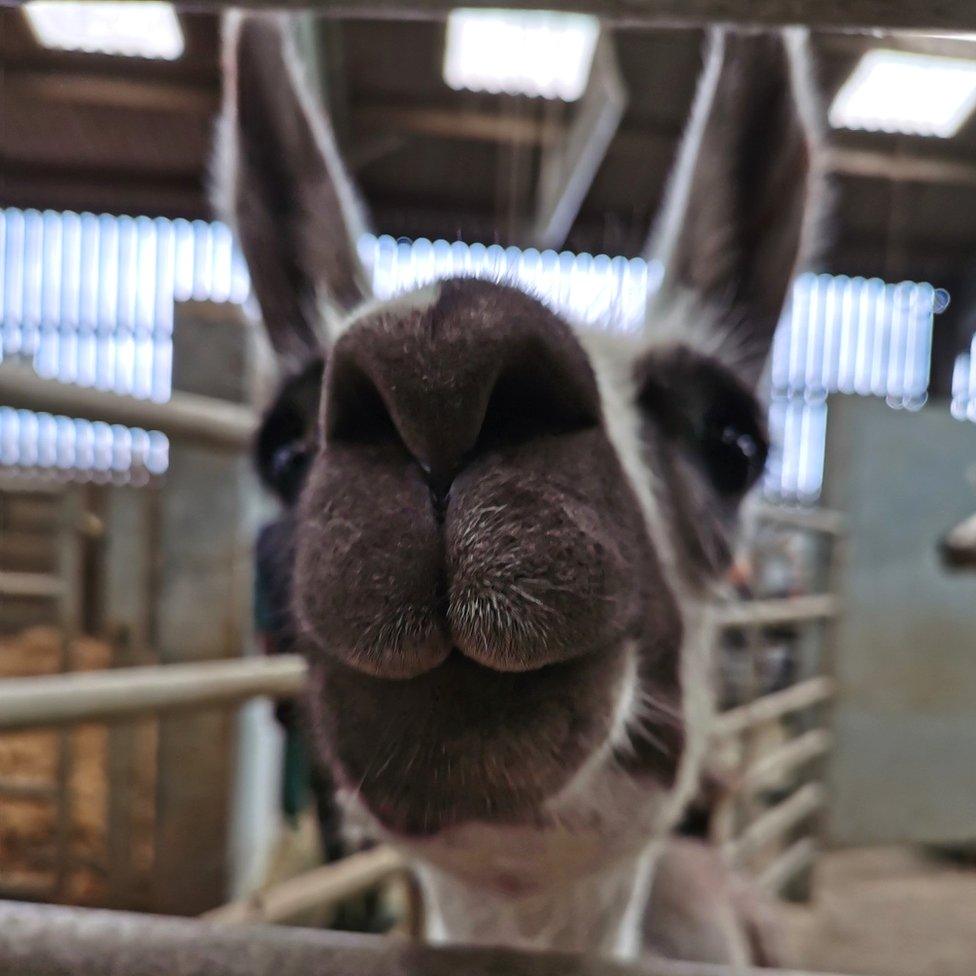
Fifi the 'Franklin llama' lives at a farm facility at the University of Reading
A Covid therapy derived from a llama named Fifi has shown "significant potential" in early trials.
It is a treatment made of "nanobodies", small, simpler versions of antibodies, which llamas and camels produce naturally in response to infection.
Once the therapy has been tested in humans, scientists say, it could be given as a simple nasal spray - to treat and even prevent early infection.
Prof James Naismith described nanobodies as "fantastically exciting".
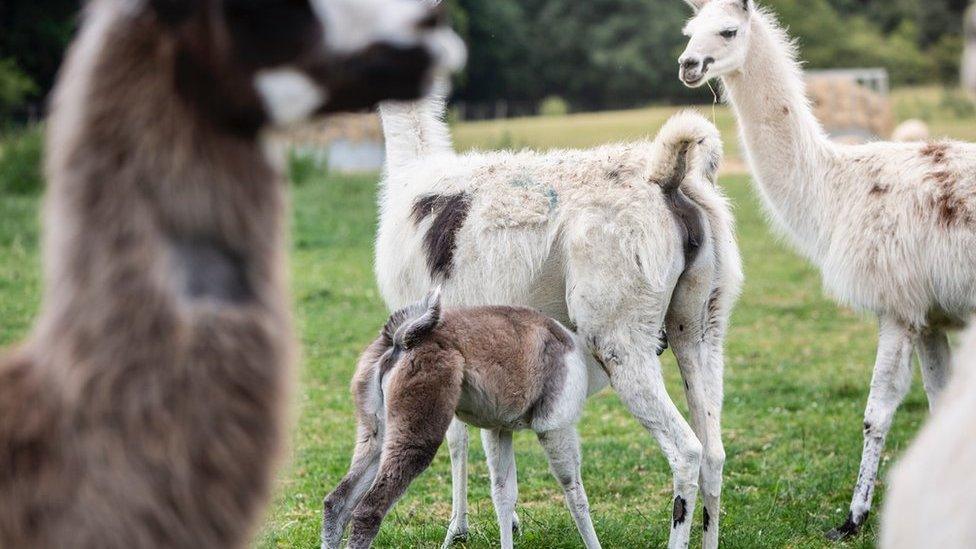
Llamas, alpacas, camels and sharks have evolved to produce nanobodies in response to infection
Prof Naismith, who is one of the lead researchers and director of the Rosalind Franklin Institute in Oxfordshire, external, explained that coronavirus-infected rodents treated with the new nanobody nasal spray fully recovered within six days.
The treatment has, so far, been tested only in those lab animals, but Public Health England said it was among the "most effective SARS-CoV-2 neutralising agents" it had ever tested.
This apparent covid-fighting potency comes from the strength with which nanobodies bind to the virus.
Just like our own antibodies, virus-specific nanobodies latch on to and bind to viruses and bacteria that invade our bodies. This binding essentially tags an invading virus with an immune "red flag", to allow the rest of the body's immune armoury to target it for destruction.
The nanobodies that these researchers produced - with the help of a llama's immune system - bind particularly tightly.
"That's where we had some help from Fifi the 'Franklin [Institute] llama'," explained Prof Naismith.
By vaccinating Fifi with a tiny, non-infectious piece of the viral protein, the scientists stimulated her immune system to make the special molecules. The scientists then carefully picked out and purified the most potent nanobodies in a sample of Fifi's blood; those that matched the viral protein most closely, like the key that best fits a specific lock.
The team was then able to grow large quantities of the specially selected, most potent molecules.
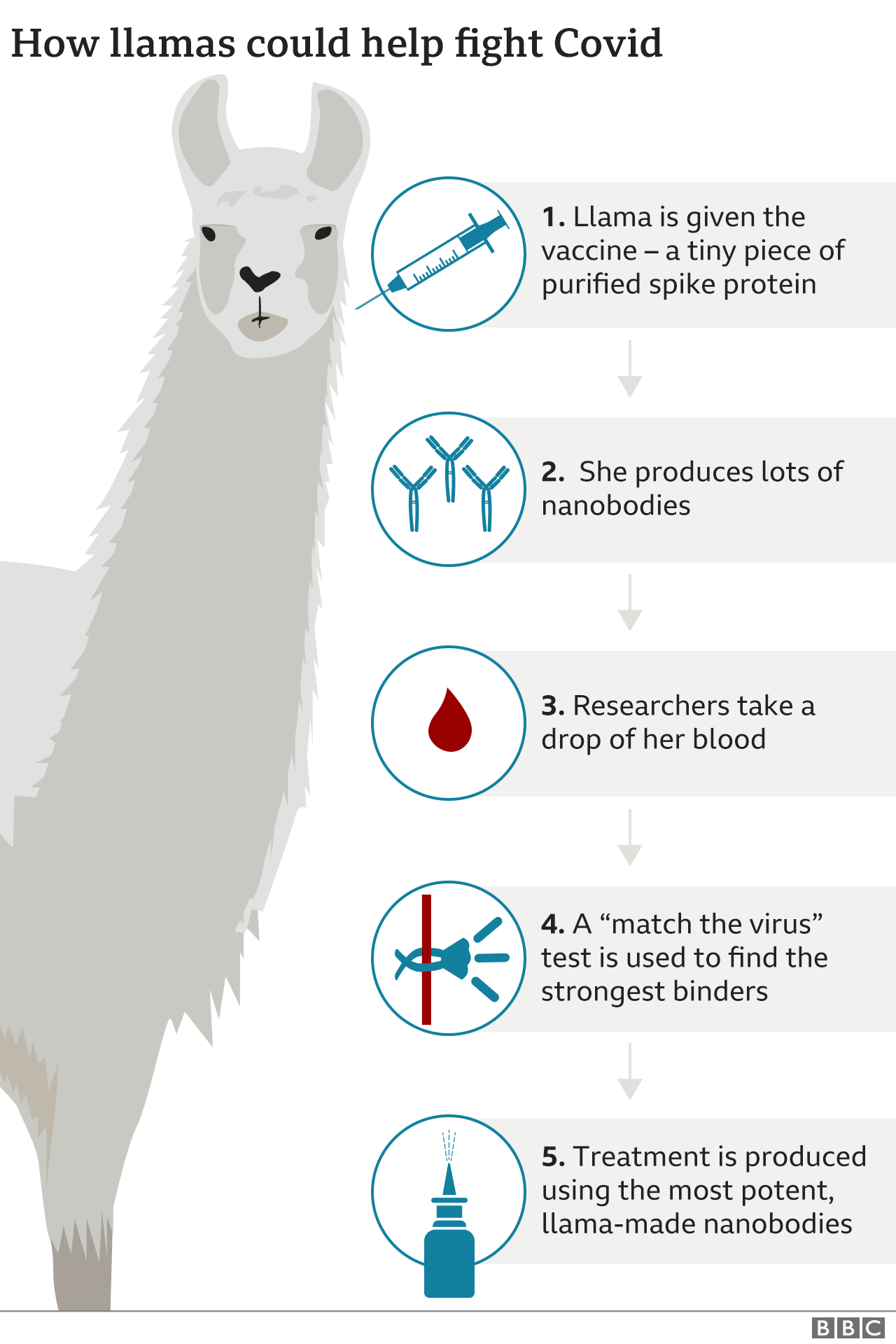

Prof Naismith told BBC News: "The immune system is so marvellous that it still does better than we can - evolution is hard to beat."
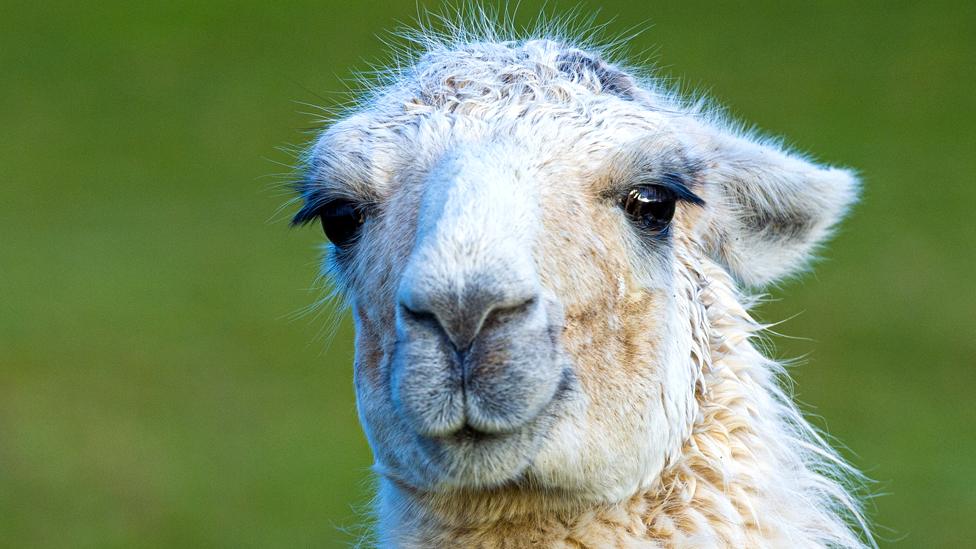
Professor Sheena Cruickshank, an immunologist from the University of Manchester said the new development was "exciting but still quite early".
"We need more data on efficacy and safety before we move to human trials," she added. "However it's very promising nonetheless and the fact it may be cheaper and easier to administer is a plus. Covid-19 will be, unfortunately, with us for a while yet, so more treatments will be needed."
Professor Naismith and his collaborators, who published their research in the journal Nature Communications, external agreed that, even with the success of the Covid vaccines, having effective treatments in the future would be very important.
"Not all of the world is being vaccinated at the same speed," he said, "and there remains a risk of new variants capable of bypassing vaccine immunity emerging."
Follow Victoria on Twitter, external
Related topics
- Published13 July 2020
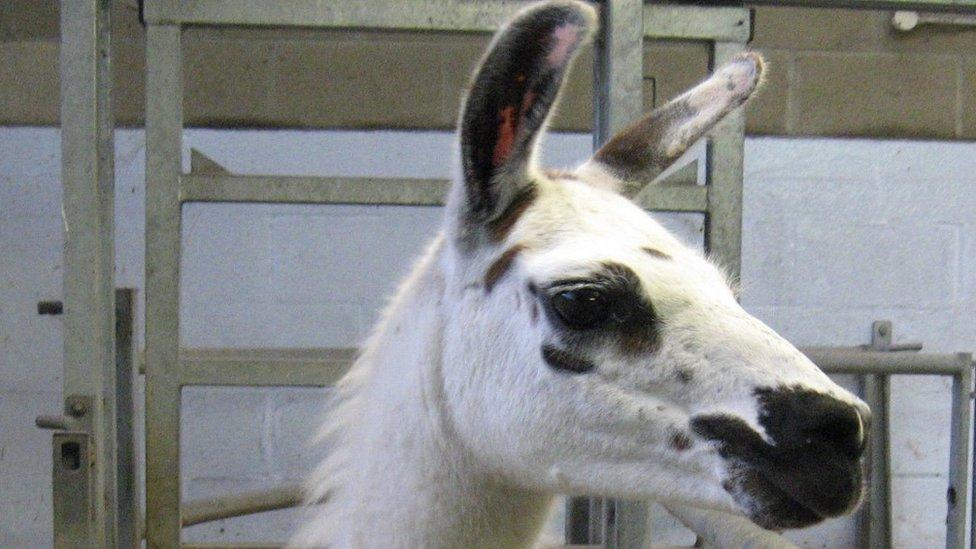
- Published10 July 2021
